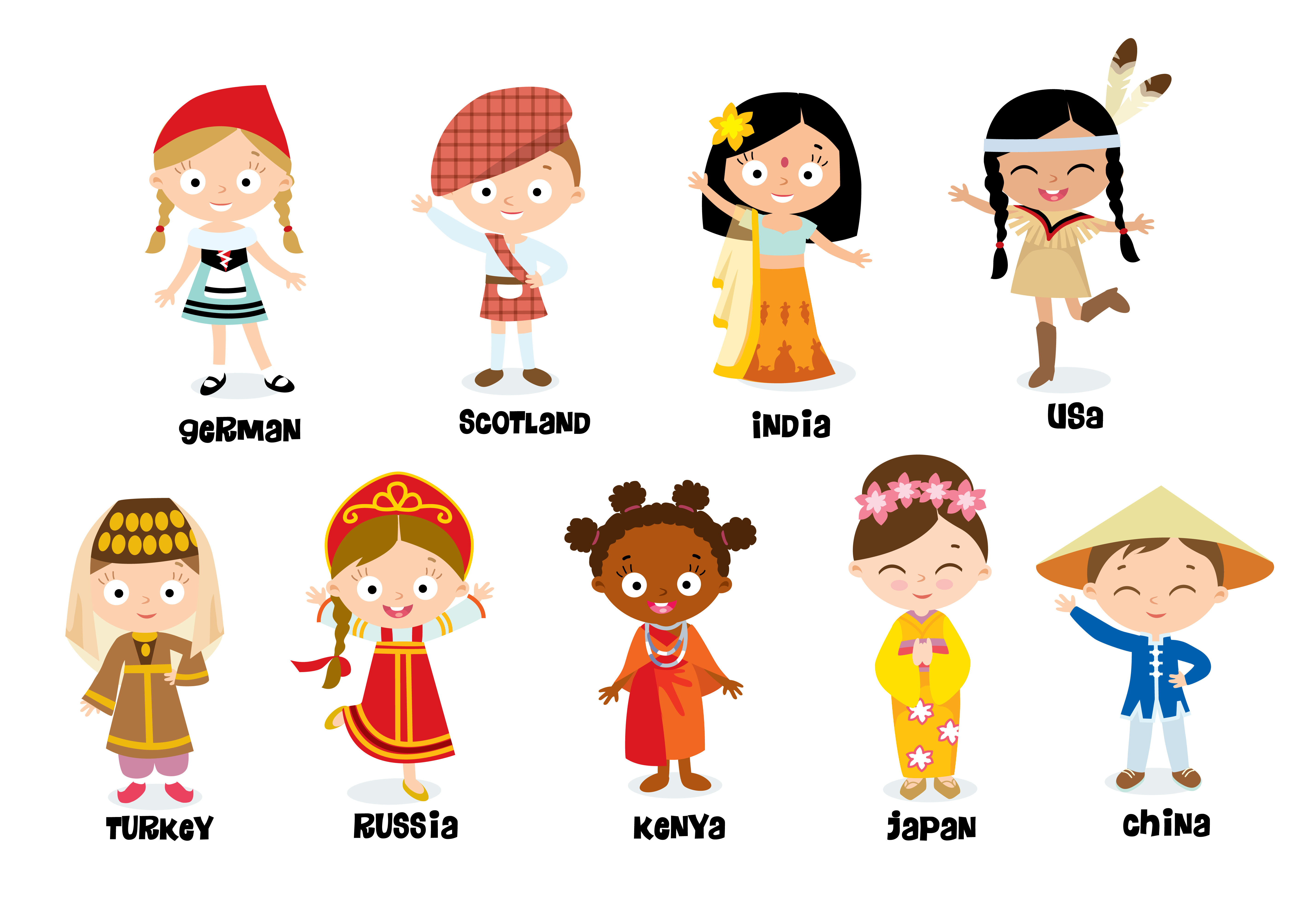Understanding number relationships Worksheets for Ages 3-5
4 filtered results
-
From - To
Explore our "Understanding Number Relationships Worksheets" designed for ages 3-5! These engaging worksheets help young learners develop a strong foundation in early math skills. Through colorful activities and interactive exercises, children will grasp key concepts such as greater than, less than, and equal to. Our resources promote learning through play, encouraging counting, comparing numbers, and recognizing patterns in a fun, educational way. Perfect for home or classroom use, these worksheets are an excellent supplement to early childhood education. Foster your child's confidence in math and lay the groundwork for future success with our carefully crafted number relationship activities!
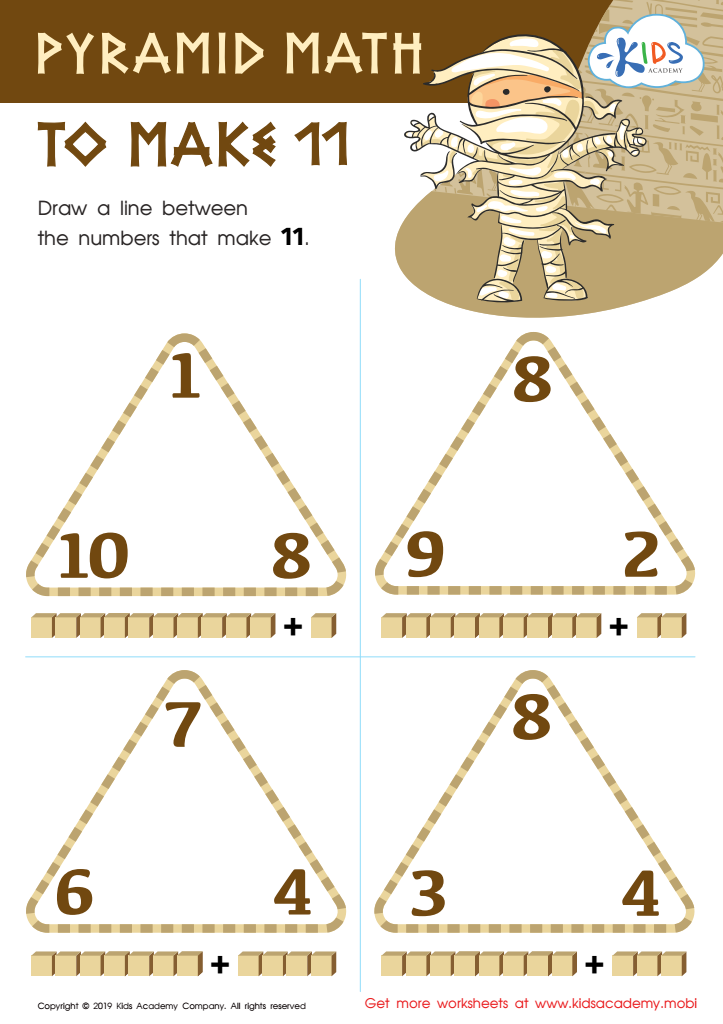

Pyramid Math to Make 11 Worksheet
Understanding number relationships is crucial for children aged 3-5, laying the foundation for their future mathematical success. At this age, children are naturally curious and eager to explore their surroundings, making it the optimal time to introduce mathematical concepts. By recognizing number relationships, children learn to see connections between numbers, understand quantity, and explore basic operations such as addition and subtraction in a practical, engaging way.
Caring about these concepts helps parents and teachers foster critical thinking and problem-solving skills early on, which are essential in everyday life. For instance, when children relate numbers to objects, they develop an understanding of one-to-one correspondence and learn to compare quantities, which is fundamental in understanding more complex mathematical operations later. Additionally, this understanding supports their cognitive and language development, as they articulate their thoughts about numbers and relationships.
Promoting an environment where numeracy is valued inspires children to adopt a positive attitude towards mathematics, overcoming potential math anxiety in the future. Ultimately, investing time and resources to nurture algebraic thinking and number relations during these formative years instills a love for learning and cultivates lifelong learners equipped for academic and real-world challenges.
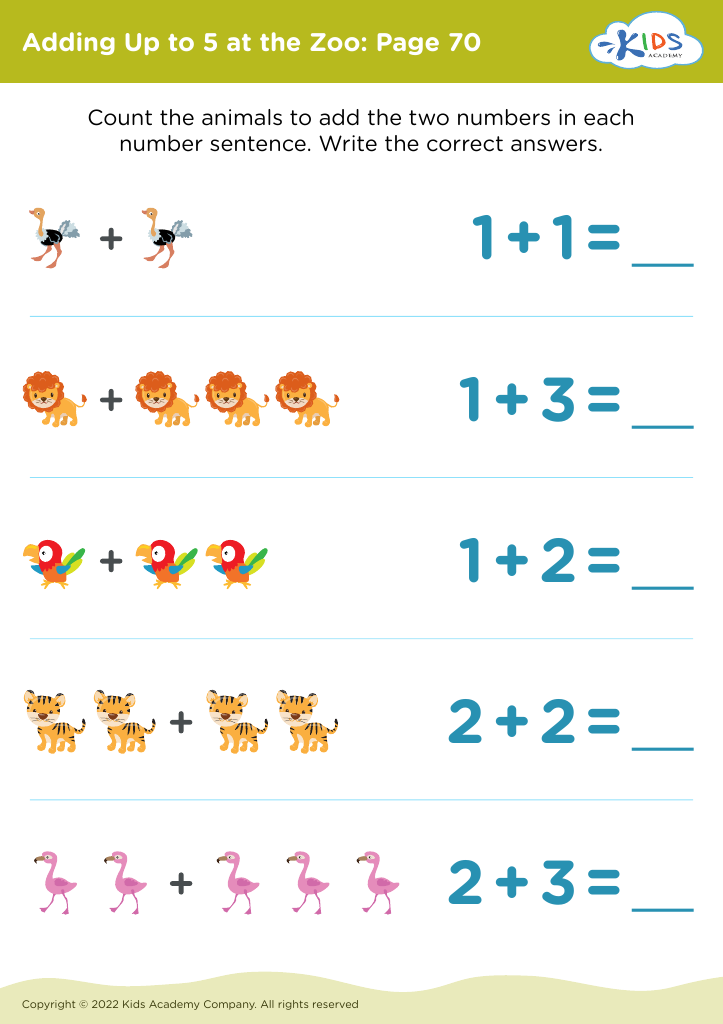
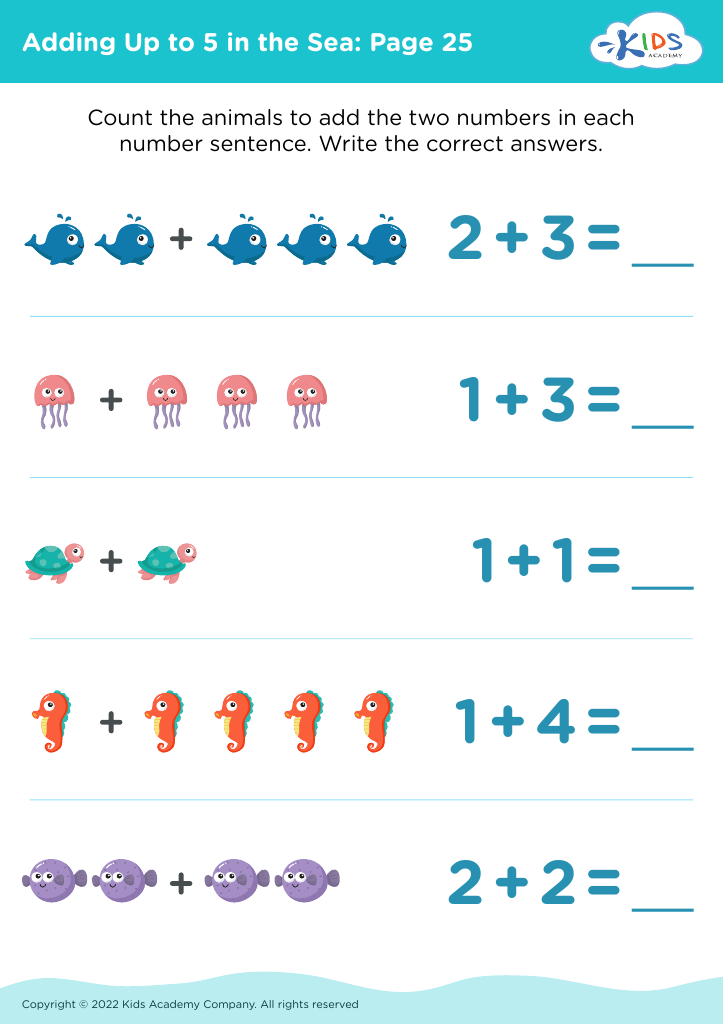
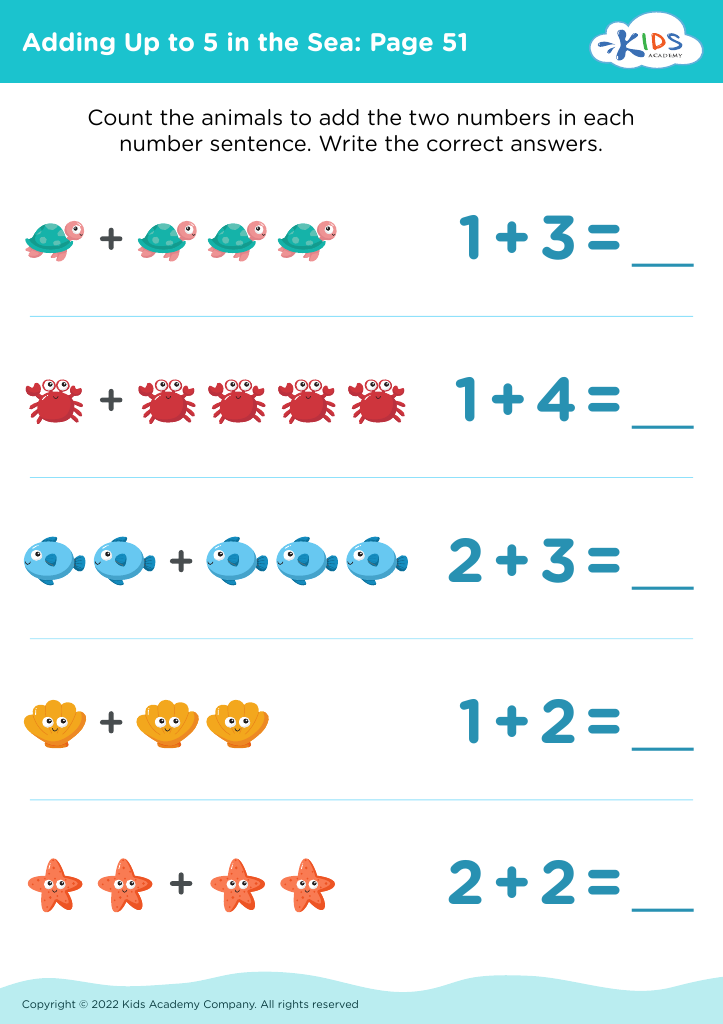
 Assign to My Students
Assign to My Students







